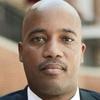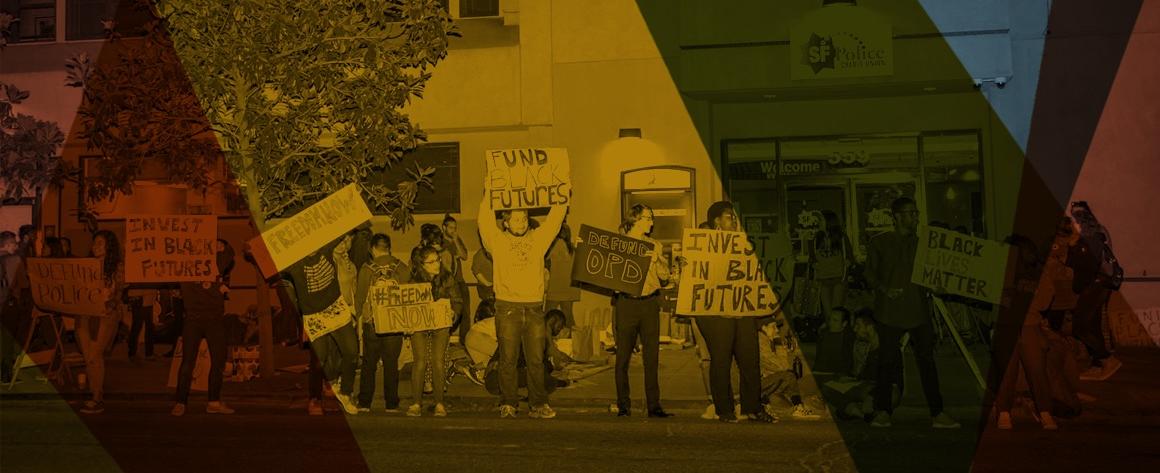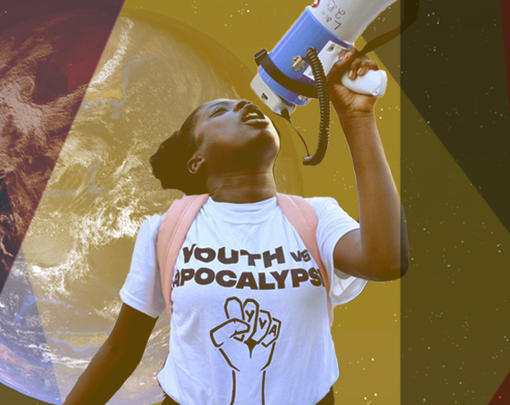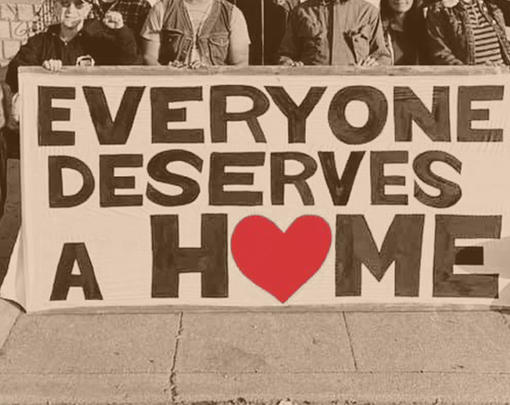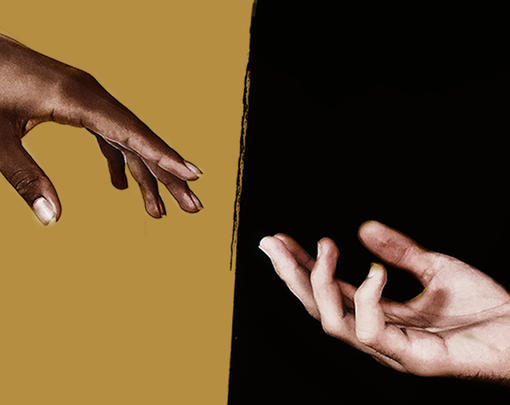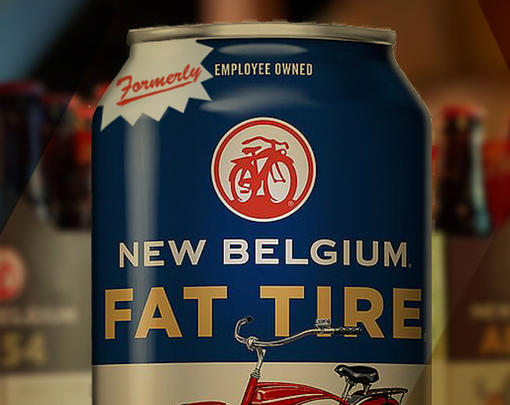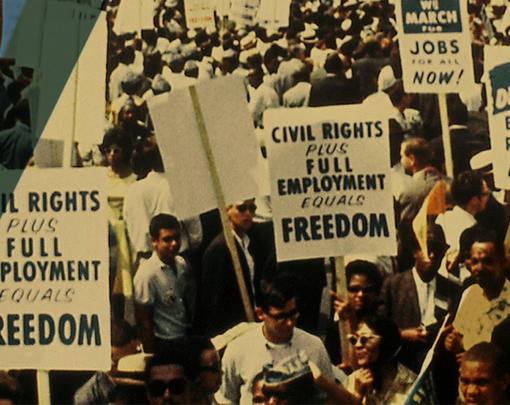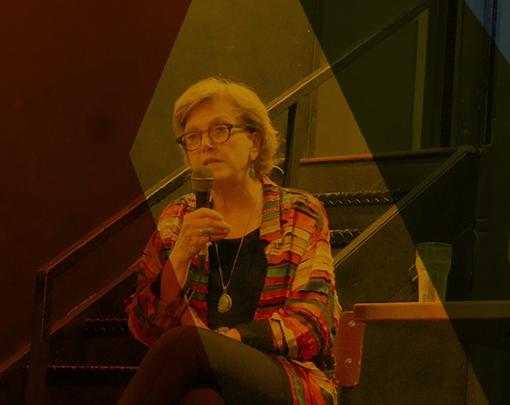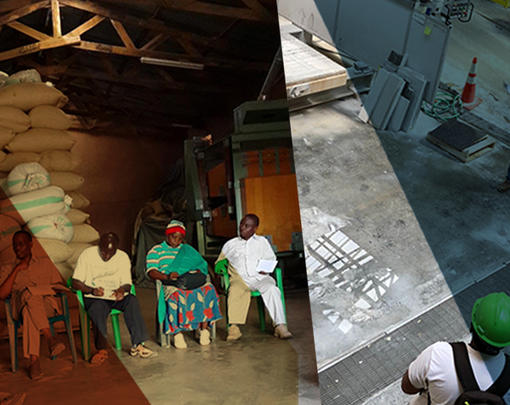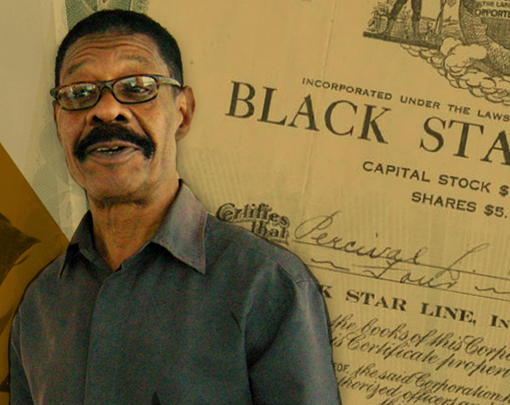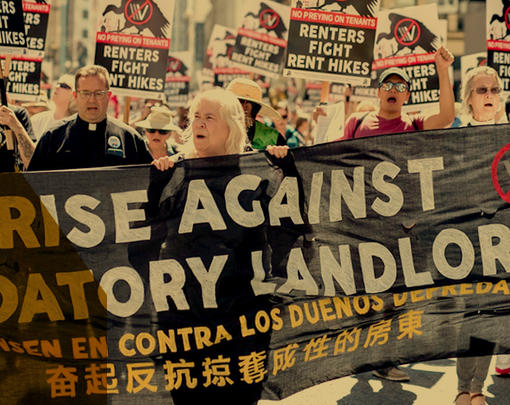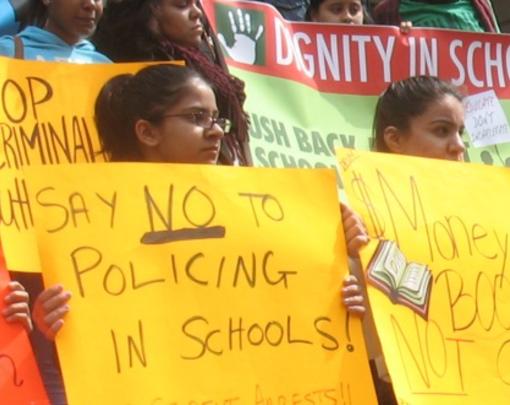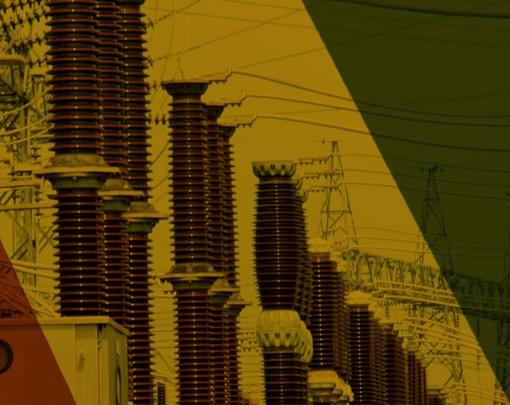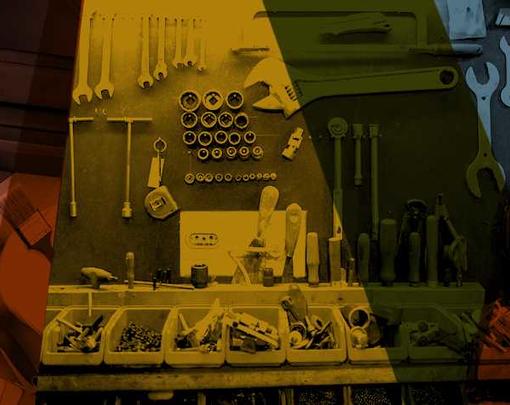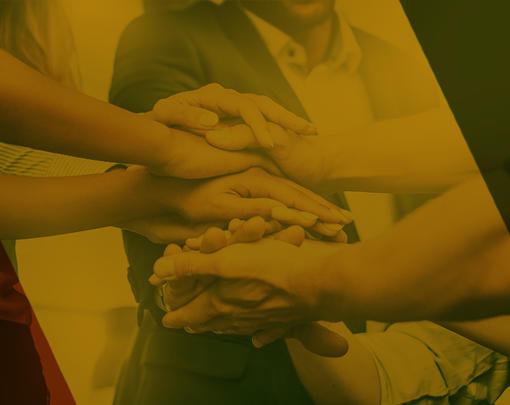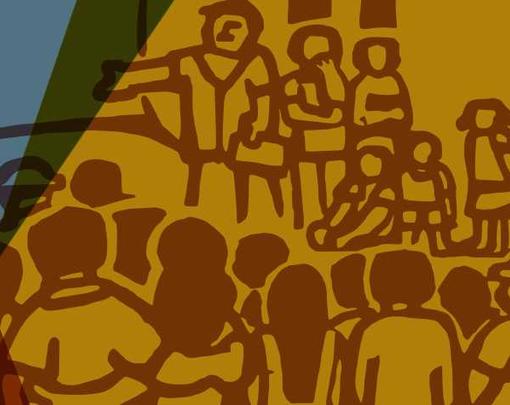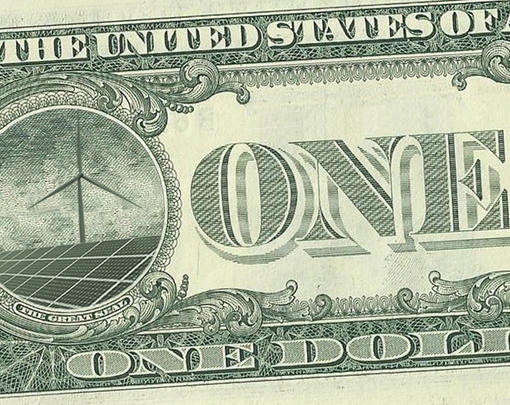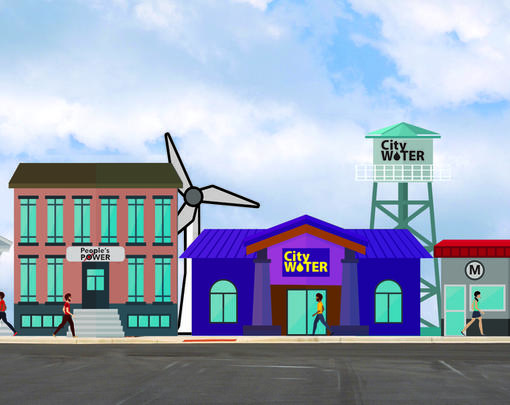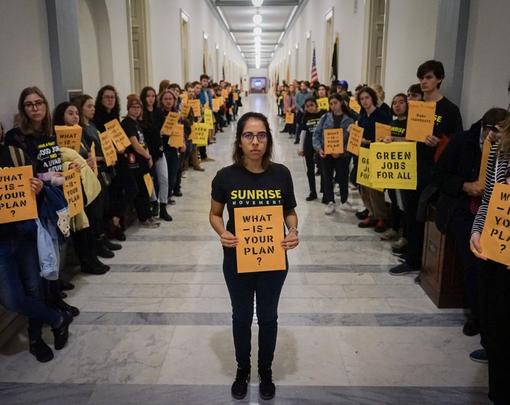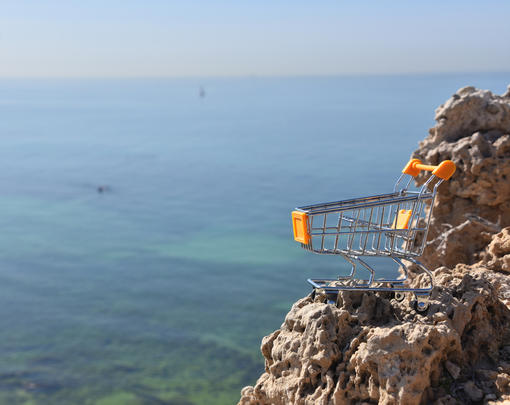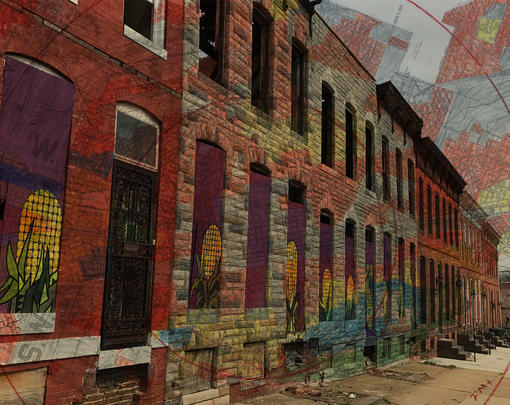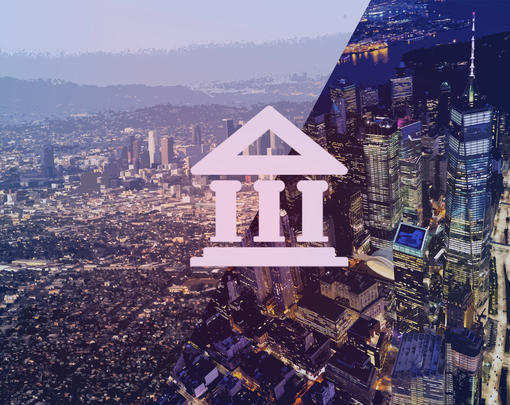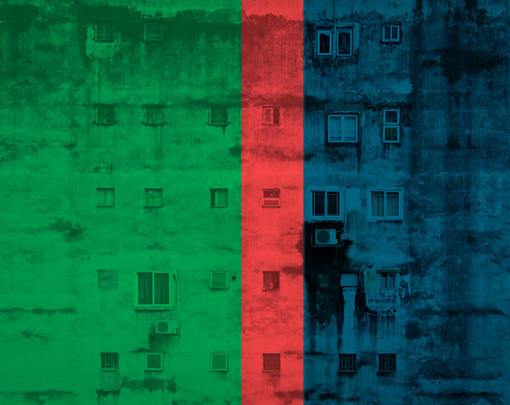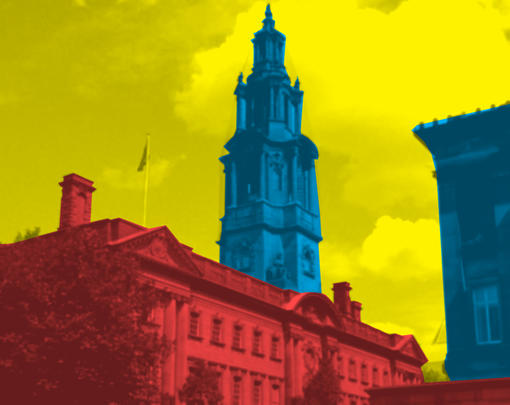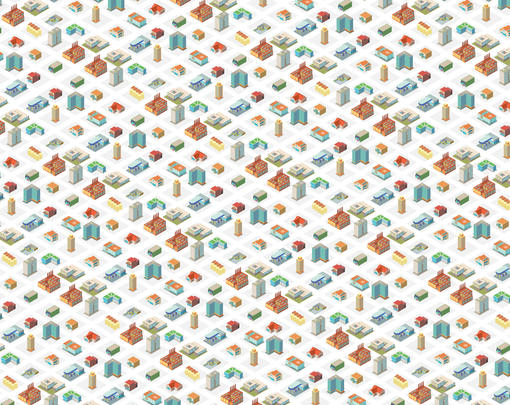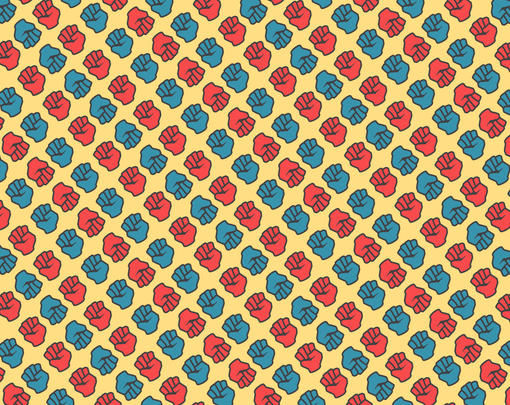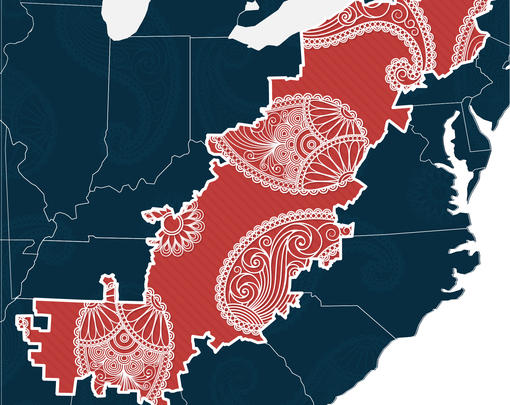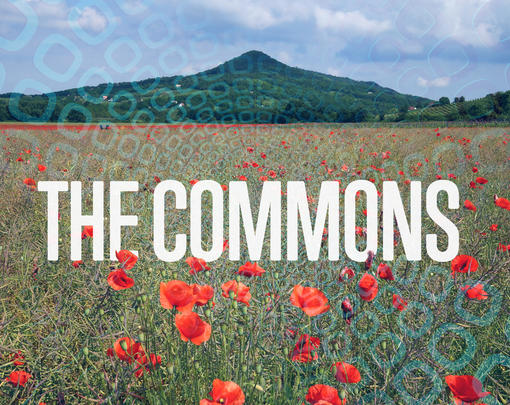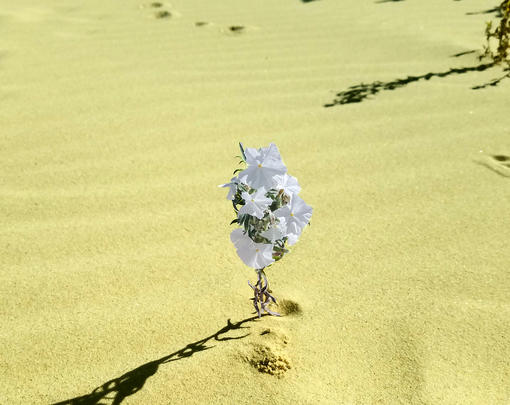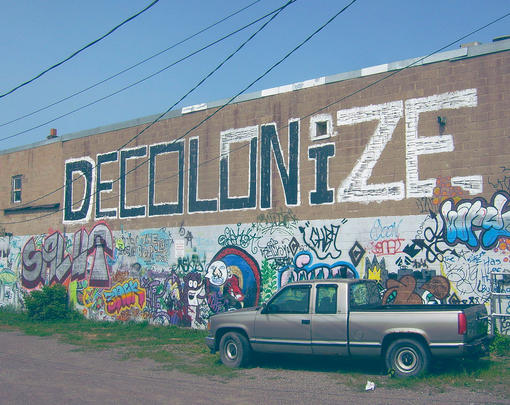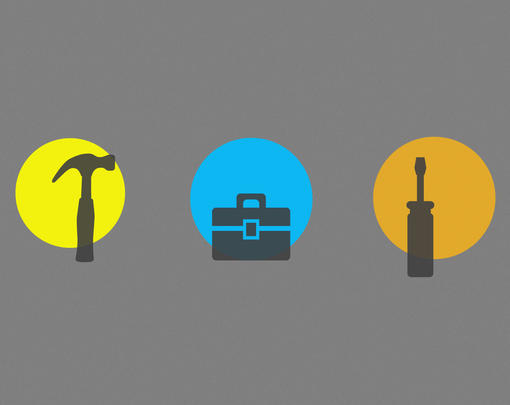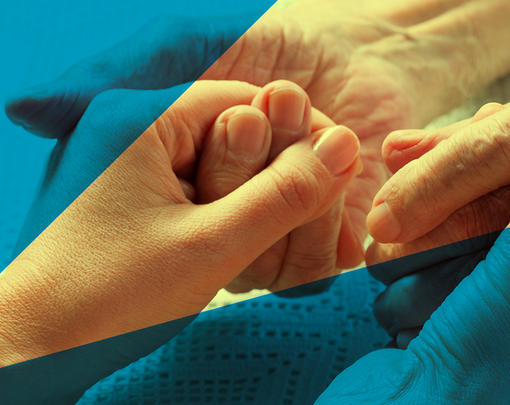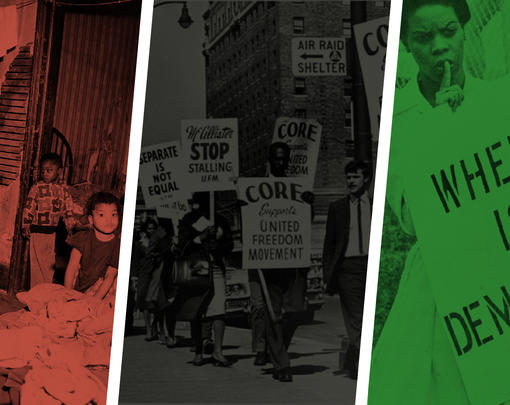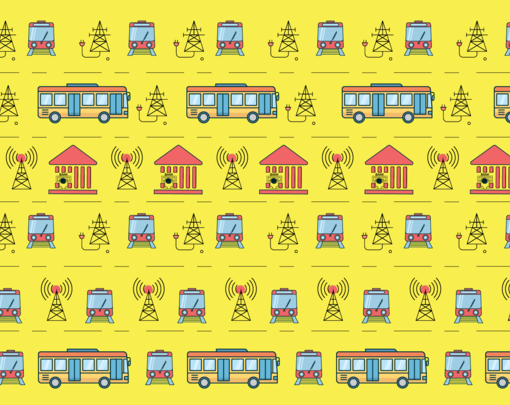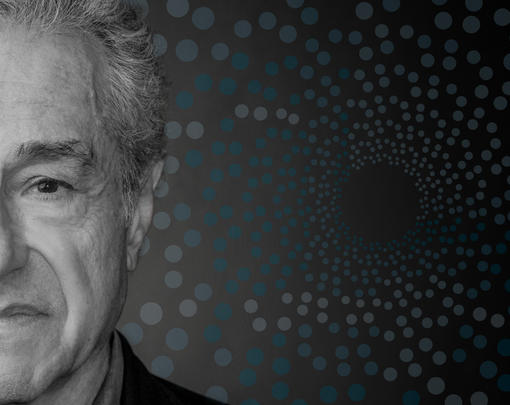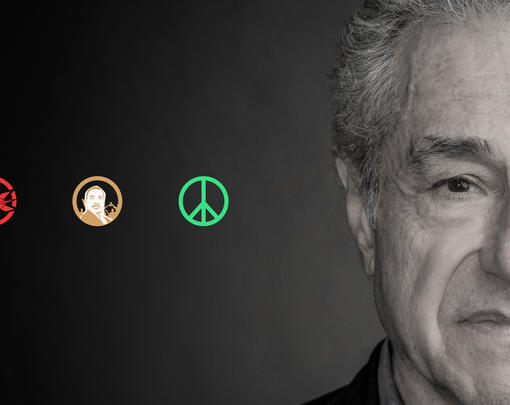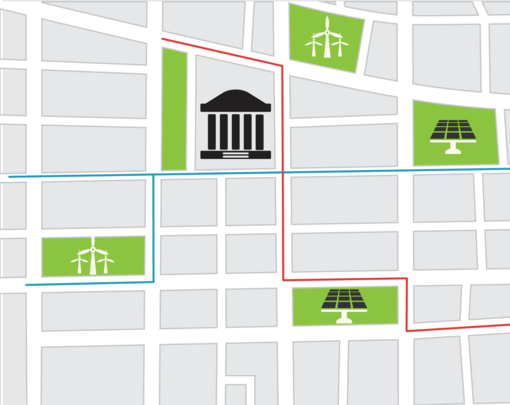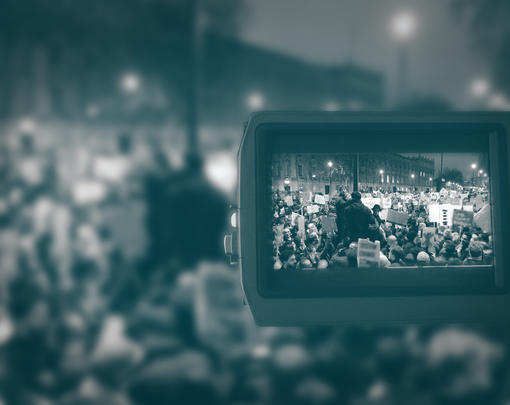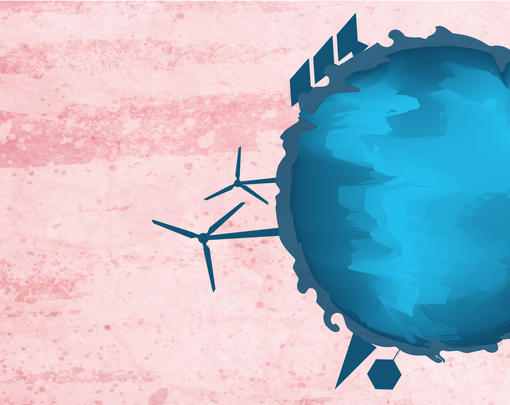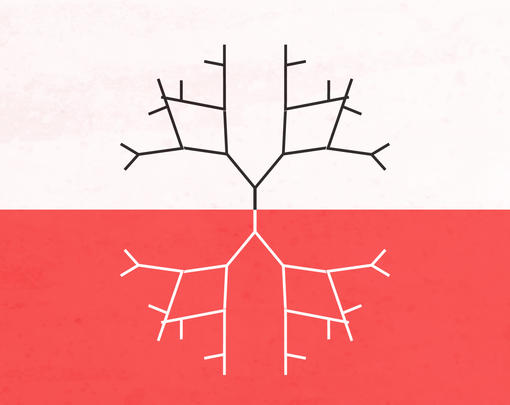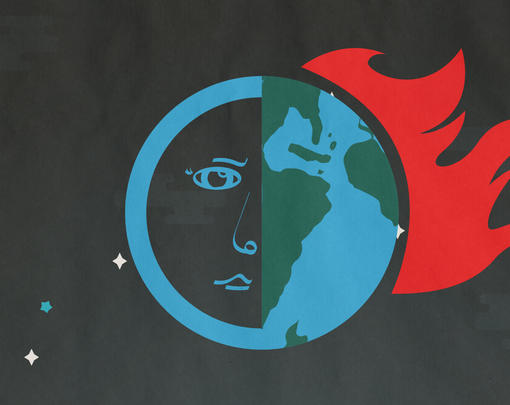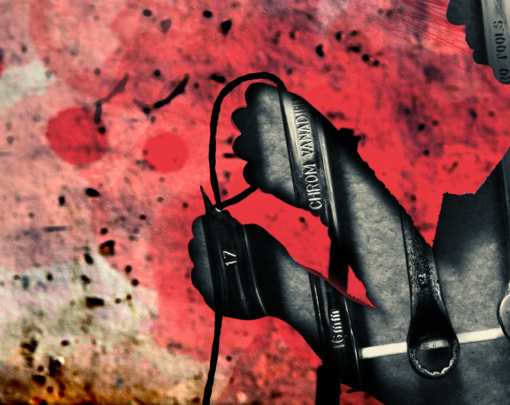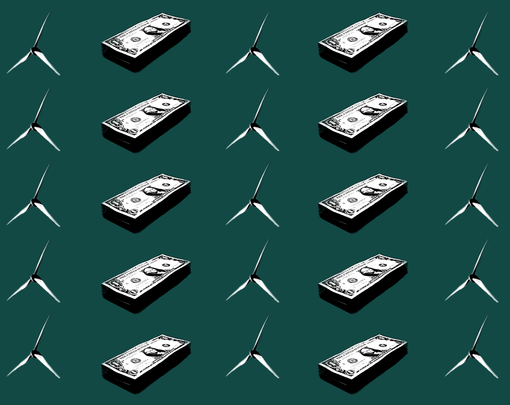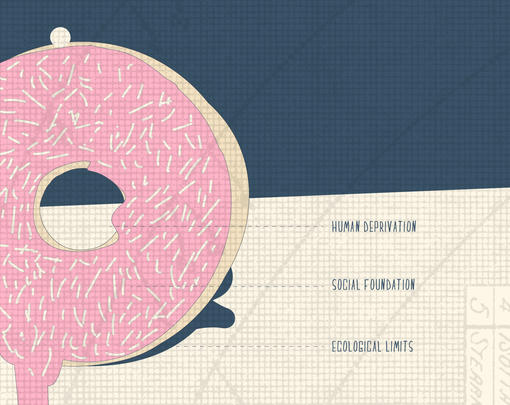Four hundred years after the first African slaves were brought to America—the initial act of America’s “original sin”—the discussion of reparations has gained a new level of seriousness. That this is happening at the same time there is a broad reassessment of the structure of the American economy raises serious questions about what should comprise a reparations program and what role it should play in creating a new, democratic economy.
Ronnie Galvin, The Democracy Collaborative’s Vice President of Racial Equity and the Democratic Economy, leads this discussion with two key figures in the reparations debate: Dr. Ron Daniels of the Institute of the Black World 21st Century and Dr. Akilah Watkins-Butler of the Center for Community Progress.
The Next System Podcast is available on iTunes, Soundcloud, Google Play, Stitcher Radio, Tune-In, and Spotify. You can also subscribe independently to our RSS feed here.
Photo credit: Brooke Anderson Photography
RONNIE GALVIN: Good day everyone, and thank you all for joining us. My name is Rev. Ronnie Galvin, and I am the Vice President for Racial Equity, Reparations and the Democratic Economy at the Democracy Collaborative in Washington, D.C. Today, we are talking about the prospects of reparations and the democratic economy.
Let me begin just with some framing remarks for what we mean by the democratic economy. This is coming from a recent book, written by our president Ted Howard and our senior vice president Marjorie Kelly, on the topic of the democratic economy and it’s taken the country by storm. In their book, they say that the democratic economy is an economy of the people, by the people, and for the people. It’s an economy that, in its fundamental design, aims to meet the essential needs of all of us, to balance human consumption with the regenerative capacity of the Earth, to respond to the voices and concerns of regular people, and to share prosperity without regard to race, gender, national origin or wealth.
At the core of a democratic economy is the common good, in keeping with the founding aims of democracy in our politics. That’s what they have to say about the Democracy Collaborative and we’ll use that as our frame today.
Just a little bit about the Democracy Collaborative and why we’re talking about the prospects of a democratic economy and reparations. At the Democracy Collaborative, our pursuit of the democratic economy emerges out of the understanding that our current systems of politics and economy are designed to extract, exploit, and privilege a few at the expense of the many. Zoe Samudzi and her coauthor Victor Anderson, in their book As Black as Resistance, names this political economy as a system of white supremacist capitalism.
We contend that given this frame and this reality of white supremacist capitalism, we contend that it is not enough to tinker around the edges of the system with the hope of reforming it. We at the Democracy Collaborative—and with a growing movement of folks in this country and around the world—are already in motion, in movement even, to give rise to a political economy, a democratic political economy, a moral democratic political economy that serves the interests and the aspirations of the majority of people in the country.
The question that we’re wrestling with is what is the role that reparations plays in our pathway and as we take our rise in the struggle toward a more democratic economy.
To help us wrestle with this question today, we’ve invited two prominent leaders, from the movement and the work around the country to join us in this conversation today.
Our first guest is Dr. Ron Daniels. Dr. Daniels is the founder and president of the Institute of the Black World, 21st Century. The institute is a progressive, African-centered, action-oriented resource center dedicated to empowering people of African descent and in marginalized communities. Dr. Daniels is also the chair of the National African American Reparations Commission. The commission has long agitated, educated, and advocated for reparations for Black people. Most recently, Dr. Daniels and the other commissioners testified on Capitol Hill in support of reparations and H.R. 40, a bill that calls for a reparations study in the country.
Dr. Daniels—I’m a little intimidated on this podcast—also hosts a weekly current affairs program called Vantage Point Radio. The show is broadcast each Monday from 4:00 to 5:00 PM on Pacifica Radio, WBAI 99.5 FM in collaboration with York College Radio. Welcome, Dr. Daniels.
RON DANIELS: It’s an honor to be here!
RONNIE GALVIN: Thank you, sir. Our next guest is Dr. Akilah Watkins-Butler. Dr. Butler is the president and CEO of the Center for Community Progress here in Washington D.C. with offices and organizers around the country. The Center was founded in 2010 and is the leading national nonprofit resource for urban, suburban, and rural communities seeking to address the full cycle of property revitalization.
The Center addresses the severe negative impact that vacant, abandoned, and deteriorated properties have on neighborhoods and the people living in them, including economic, social, psychological, environmental and other harms. Dr. Watkins-Butler leads a team who does their work with the recognition that a legacy of unjust laws, policies, and systems have caused communities, particularly communities of color and other struggling communities, to bear an unfair share of this burden of vacant and abandoned properties. Her team is working to reclaim that land for productive purposes. Welcome, Dr. Akilah Watkins-Butler.
Hey y’all, how you doing?
AKILAH WATKINS: Doing great.
RONNIE GALVIN: Good. Thank you all for joining and for wrestling with us on this question of the democratic economy and reparations.
Why don’t we take a few moments, because I think we have some time, Dr. Daniels, why don’t you just share a little bit of the work you’ve been doing at IBW and with the National African American Reparations Commission? And then Dr. Watkins-Butler, why don’t you follow behind him to tell us a little bit about the work that you’re doing at the Center for Community Progress? Dr. Daniels?
RON DANIELS: Well, first of all, we want to thank you for providing this opportunity and to congratulate you and the Democracy Collaborative for taking on a new, frankly, project of creating a democratic economy. Institute of the Black World, 21st Century arises out of a long, protracted struggle over the years to create a mechanism that can really cultivate a culture of collaboration to heal and empower Black families, communities and nations. In that regard, we have been working to build justice collaboratives around the war on drugs and cities across the country.
We have a Black Family Summit which consists of a number of Black, socially conscious professional organizations that grew out of the era of Black power and Black nationalism in the era of the ’60s, the social workers, the psychiatrists, psychologists, some 27 of them altogether. We also have a Pan-African unity dialog, a collaborative structure that meets every four months here in the city of New York to try to build relationships between continental Africans, Afro-Caribbeans, continental Africans, descendants, Afro descendants from Central America, African Americans. We’ve also been engaged necessarily in the struggle around reparations, which comes to us really, again, out of a longstanding advocacy on that issue and the IBW role has been to really pull together some of the veteran organizations that have been working on this issue, and to build a broad-based commission to really talk about forging a 10-point program, which we’ve done.
Synergistic, strategic, synergistic relationship with the CARACOM Reparations Commission. And strong support for HR40 which is the bill now to study reparations proposals for African Americans, which is substantively different than the initial bill which was introduced by Congressman John Conyers in 1989. It’s an incredible amount of work that we’ve taken on, but the essence of it is building collaborative structures on the thesis that we, as African people, are each other’s best teachers, that we can learn from each other. If we then learn from each other, we will take our own African-centered practices, our African-centered theory and practices as a way of rebuilding and revitalizing our families, our communities, and the nation.
RONNIE GALVIN: Dr. Daniels, all I can say to that is “àṣẹ” and to the listening audience, y’all should know that Dr. Daniels is a father to many of us in the movement and has become a mentor of mine as I’m doing this work at the Democracy Collaborative. Dr. Daniels, looking forward to intersecting the work we’re doing at the collaborative with the work you’re doing with IBW and the commission. Thank you for that.
Okay, Dr. Watkins-Butler. Tell us a little bit about the Center for Community Progress.
AKILAH WATKINS-BUTLER: First of all, Ronnie, I would love to thank you and Democracy Collaborative for having this discussion and for extending an invitation to us. We are excited to be part of this discussion and join you, Dr. Daniels, in talking about what restorative justice and reparative economics means in Black communities. So, at the Center for Community Progress, we are a national organization. We were created as a result of the subprime mortgage crisis. The subprime mortgage crisis probably was one of the most devastating economic drains for the Black community. That’s a hard feat because America has spent multiple generations draining wealth from our communities. But in the 2000s, 2008, ‘09, and ‘10, it has drained billions of dollars and left many communities hollowed out.
The Center for Community Progress was created as an answer to that hollowing out of Black and Brown communities, low-income communities across the country. What we do in short is that we work at a systems level to take vacant and abandoned and deteriorated properties and transform those properties for collective public use. We’re not just interested in one or two people getting rich at the expense of community. We are interested in the community being in the driver’s seat of its economic future, especially around land. The Center for Community Progress, we work all across the country. We have worked in over 300 communities, small and large, rural and suburban, urban places, really working with mostly local government, helping them figure out the best strategies, policies, and programming in order to reclaim land and then be able to transform that land for the greater good.
We do this a variety of ways. We work to provide technical assistance for local government and literally that means boots on the ground, really helping local government think about, reimagine their future and help them reengage various parts of government but also local community residents and then local organizations. We also provide training to individuals because a lot of people have a good heart but do not know how to do this work, right? How do we go about pulling together land and being able to create this collective future? We provide place-based training, regional academies, national conferences. Our national conference is coming up in Atlanta, October 2-4, reclaiming vacant properties.
I encourage everybody to check us out, #reclaimingvacantproperties and check us out. We also do policy and research because a lot of communities do not have the resources, time, and technical expertise to be able to actually research what’s happening in their various communities, but also figure out what are some of the resources they can tap into statewide and nationally. So, we’re able to develop research and help to create local and state policies that are beneficial for communities and then help those communities actually implement that policy.
RONNIE GALVIN: Nice.
AKILAH WATKINS-BUTLER: Our work is very broad, it’s very systematic, but at the core, it’s really about helping communities, especially those that have been devastated and decimated by the recent mortgage crisis, be able to reimagine what a future could look like if we were to take this more collective approach to land and property.
RONNIE GALVIN: Thank you, Dr. Watkins-Butler and for the listening audience, you should know that we also have a connection to Dr. Watkins-Butler. We go a long way back just personally, doing some organizing and community building work in Atlanta. Dr. AK, I think you were with the community foundation at the time, there in Atlanta, right?
AKILAH WATKINS-BUTLER: Absolutely. Ronnie and I, or Reverend Galvin I should say, have worked together for close to 20 years. Our work started in some of the most disinvested communities in and around the center of Atlanta, really helping to get resources and technical assistance in the hands of residents, so they can begin the push for a better future for their community. I’ve had the pleasure of working with Ronnie and seeing him on the ground and seeing him really work in partnership with residents and it’s been a pleasure, Ronnie. It’s been an amazing journey with you and I’m happy that we’re starting a new chapter of our relationship.
RONNIE GALVIN: Thanks, thanks. I want to get right to the meat of our topic. Dr. Daniels, can you level set us? You and your comrades who’ve been fighting alongside you have been struggling around this issue of reparations and pushing it into the public square in our nation’s consciousness. Lo and behold, it’s here.
I mean, we’ve got presidential candidates now, at least on the Democratic side, at least using the word “reparations” and words like this can often by co-opted and now since we have one of the purveyors of the word and the frame on the phone with us, would love to have you just kind of level set with us and just give us what are the basic tenets, guardrails of reparations and how are people talking about it? How should we be talking and thinking about it?
RON DANIELS: Well, first of all, I’m simply following in the definitional work that has been done by organizations over the years, particularly NCOBRA, the National Coalition of Blacks for Reparations in America. I was mentored by Queen Mother Audley Moore, one of the great giants of this era, promoting reparations because Queen Mother Moore said she was the brain surgeon.
Her past was to operate on constipated minds and mine was one of them because I didn’t have no idea about reparations or anything else. Her challenge was to de-Negroize me and to bring me into some state of consciousness, so I am forever indebted to her.
But the concept of reparations, people should understand, is rooted in international law and it is not unprecedented. Reparations is simply the repair of damages that are done to a people and that repair, it is the repair of the physical, spiritual, cultural, and psychological damages done to a people.
The presupposition there is that if there’s domination or there is oppression or suppression, then the oppressor and the parties that are afflicting, whoever afflicted that damage, need to repair it. The most salient case that most people refer to is, of course, the Holocaust in Nazi Germany where some 6 million Jews, in one of the great genocidal, sad legacies in the history of the world, were destroyed along with another 6 million others which, by the way, don’t often get referenced because there were really 12 million people.
Six million were seen as deviants and all kinds of other people that the Nazis wanted to do in terms of purifying the race and all of this madness. But the question was therefore how to repair the damage. Traditionally, what happens is, first of all, there must be the acknowledgment by the offending party that a wrong has been done, number one.
Secondly, there must be an apology and then beyond that apology, there must be restitution. There must be an effort to repair in terms of compensation and restitution and to do it in such a way that that which occurred will never, ever happen again.
The first thing we need to establish is this concept of reparations is not new. It’s not a foreign concept. It is rooted in international law and indeed at the Durban conference that was held, United Nations Durban conference in South Africa, over the opposition of the United States, the conference resolved that the Trans-Atlantic Slave Trade was a crime against humanity and always should have been so designated.
So, it’s well established and then when we look at that, even today, there are the descendants of those who were in the Holocaust in Nazi Germany are still receiving payment, compensation, various forms of compensation have been awarded. But also, the native, indigenous folk in Canada, and others, the Eskimo and others, also the Canadian government has awarded reparations to them. Not sufficient, but nonetheless, it has been done.
Even within this country. In fact, the basis of H.R. 40 is the fact that one of the tragic legacies of American history was the internment of thousands of Japanese citizens by Franklin Delano Roosevelt, erstwhile progressive president, during the Second World War.
Well, a bill was passed in which the descendants of those who were interned were awarded various amounts of money, $20,000 or more even within these United States of America. So, it is a well-established precedent, it is a well-established part of international law that reparations are due to groups who have been damaged physically, psychologically, culturally, or otherwise.
RONNIE GALVIN: Thank you for that history lesson and for level-setting us, Dr. Daniels. Dr. Watkins-Butler, I want to turn to you for a second because the Center for Community Progressive, where you do your work, you focus on the issue of land and clearly, if folks have just a basic understanding of American history, not the sanitized version but the real version, some of the original trauma and damage that has been done to the peoples of this land happen as a consequence of land theft.
I’m curious about your own thoughts and analysis about the kind of history of land theft and how this country was taken from its native people and how trauma and theft around land shows up today and how that impacts and influences your work. So, speak a little bit about that and any thoughts on how reparations intersect or is embedded or centered in the work that you do at the center.
AKILAH WATKINS-BUTLER: Ronnie, that is such a huge question and I think it’s an important one because the thing about white supremacy is that the outcomes really don’t change, right? It may reorganize itself but it’s pretty much the same old kind of process or outcome. We all know that America was created because indigenous peoples’ lands were stolen systematically over time.
It really is the same thing that happened to African Americans, right? We all know that Africans who were enslaved and were brought here literally had nothing for several generations. I need to set the context because I think people may think that we’re doing the best we’ve ever done economically in 2019, right? That’s not necessarily the case when you look at the numbers. I just wanted to set the context that we as African people came over here with nothing other than our deep culture but economically, we came over here with nothing.
Just to give you some context: At the beginning of the 20th century, over 120 years ago, formerly enslaved Africans owned 15 million acres of land. Just so we all know, that is roughly about 14% of all rural farms. We’re going to just look at rural farms. To think about that we were roughly about 10% of the population and owning disproportionately more land than we were equal to the population is amazing. To think that Africans did this in less than 300 years and you think about the institution of slavery, the institution of the Native period and the institution of Jim Crow.
You think about just the power of the African spirit, how we were able to rise up in all of that systematic trauma and abuse and literally be able to own 14% of America. That’s amazing in 1920. So, when we contrast that with today, and I want to be clear that Dr. Hilliard, rest his soul, used to say to me when I used to go into his office and complain about, “Man, I wish we were further, I wish we did more.”
He gave me a perspective that the African spirit is extremely resilient and to think about what we’ve been able to accomplish in a few generations is amazing, right? But to think about how blacks today own less than 1% of rural farmland compared to where we were in 1920, I think we need to kind of dissect what’s going on there. Let’s really unpack what has happened to millions of acres of land.
We have some idea that that land was stolen, so usually what happens is white supremacy likes to systematize how they siphon land out, right? Sometimes it’s done by pure just man-to-man violence and that was a huge part, too, and I don’t want to lose that. When you think about places like Tulsa, Oklahoma and many other economic hubs around the country that blacks literally lost their land because of violence—state-sponsored, city-sponsored violence.
But also, most Black folks lost their land because of trickery. The leases and loans and paperwork, what I call administrative racism. It doesn’t feel like racism because you’re like, “Somehow, I had a part in it,” but it is racism because it was designed for you to lose. It wasn’t designed to make sure the process moves faster, right?
It’s called administrative racism, so when we think about in 100 years, we went from having 14% of all the farm in the country to now 1%, I do think that has had a devastating impact on our collective wealth as a people.
The other thing I would like to just kind of illustrate is that again, like I said, the outcome of white supremacy doesn’t really change, so when we think about where we are today, it hasn’t changed. When we think about the mortgage meltdown, subprime mortgage crisis of the 2000s, what we begin to see is that blacks have lost $71 billion to $92 billion of their wealth. This is according to the United for the Fair Economy organization and they did a report called “Foreclosed.” Brilliant stuff here and we lost up to $92 billion in the recent mortgage meltdown. That’s why people say this is the largest transference of wealth from Black families ever—ever. To be honest with you, we don’t even know how we could possibly recover from $92 billion.
As we parse out some of my comments, I can really talk about what that means in terms of homeownership, what that means in terms of…
RONNIE GALVIN: My God.
AKILAH WATKINS-BUTLER: …retiring, sending our kids to college, starting businesses. When we think about organizations like Community Progress, we were created to help restore some of what has been lost. But I needed to set the context for people so they understand this is no small feat.
RON DANIELS: Can I chime in on this as well?
RONNIE GALVIN: Please.
RON DANIELS: And Dr. Asa Hilliard—just want for our audience’s sake, because Dr. Akila mentioned him—is one of the great African-centered scholars and giants that, God rest his soul, just taught so many of us. But I also think we need to just, in terms of the overall context, we need to understand that the resiliency question, I also want to unite around that.
Because we have to understand when we’re talking about the issue of reparations, we’re talking about the heroic, longstanding effort of African people who were ripped off or brought to this country. This is the 400th anniversary of the first indentured enslaved Africans arriving in Jamestown.
It’s a much deeper conversation because it’s not as if we were all from the same ethnic group, that we all had the ability for cultural continuity. We were diverse people and there was a systematic program of de-Africanizing the Africans. So, Malcolm X put it plainly. He said two things. He said, “We didn’t land on Plymouth Rock. Plymouth Rock landed on us.”
The other thing that he said that was profound, he said, “Of all the crimes committed by Europeans against Africans, the greatest crime was to take our names.” By names, he meant the whole question of cultural continuity, the whole question of culture, the attack on culture.
When you start talking about the de-Africanization, you’re talking about a systematic effort to have Black people not identify with Black, not identify with Africa, not playing musical instruments, not practice our religion. All of those things were an assault on Africans who came to this country, which is really in some ways unique to Africans in America.
At some point, we can explore that in greater depth. But it is also the commodification in a systematic way unlike anywhere else in the world, where in fact, Africans are reduced to property so therefore you have a whole body of law which has emerged called chattel law, to regulate, quote-unquote “this peculiar institution” as articulated by one of the authors, Kenneth B. Stamp.
But we also need to, therefore, move from that proposition and understand that therefore, you have Africans trying to create against these odds a new community in this hostile society, a hostile society which was greatly enriched by the free labor of Black people.
AKILAH WATKINS: That’s right.
RON DANIELS: And I’m so happy, though I’m stunned in this period, that in the longstanding struggle that’s unfolding, finally there’s a period of reckoning that’s taking place. A part of that reckoning is frankly this new series put out by The New York Times that is actually telling the story that in fact, you cannot talk about the wealth of this capitalist political economy without talking about the sugar economy and the cotton economy built off the backs of Black people. It’s not just the South.
RONNIE GALVIN: That’s right.
RON DANIELS: This is what I try to let people understand, that every white person in this society, it’s unequal, those who are the top, at the commanding heights of capital and finance, they’ve benefited most. But to the degree that you had cotton produced in the South by free labor, that enables, in an era where also in Egypt and India cotton is being produced, America to produce the cheapest cotton in the world because of the free labor in the South. So, you may have been up South in the North but if you had a job in the textile industry, there’s a direct relationship between that job that you received and the fact of the suppression of Black labor in South.
By the way, it’s not only enslaved labor, it’s the labor that continues even after emancipation, if the story is to truly be told. So, the fact that Black people after the Civil War was over and we just quickly, you got approximately four million Black Africans in the country after the Civil War, after emancipation, about a half a million are quasi-free. I say quasi-free because not really totally free but 3.5 million are left in a situation of near-peonage almost.
Among those, sharecroppers, agricultural laborers, tenant farmers, and we all know what happened in terms of some of those things but in the middle of all of that, as Dr. Akilah has pointed out, somehow, through manumission and others, Black people accumulated this land. You’re talking about heroic struggle. That has to penetrate into the consciousness, first of all, to Black people who have to understand that history.
But also to the larger white society who has to understand this real history. In the emergency land fund, by the way, in another era and sort of cataloged that and Joe Brooks may even still be around but certainly, they did an incredible job of trying to point that out.
So, here you have Black people driven from the land, trickery, but also there’s another element here. First of all, we should’ve had more land because reparations is not just about enslavement. It’s about post-Emancipation exclusionary policies. We were not eligible for the Homestead Act. Millions of white folks were eligible for the Homestead Act, so we didn’t participate in those lands.
Also, there is the discriminatory policies. Some of that land in the South was made untenable because even in the era of Roosevelt and so forth, the agricultural extension agents were providing technical assistance and benefits to white farmers that Black farmers could not get.
AKILAH WATKINS: That’s right.
RON DANIELS: So, the land became untenable. People had to leave it because it was just untenable and so forth. That’s another element of this overall kind of picture that Dr. Akilah also laid out. Then, really not underestimating the whole issue of the attacks on places like Tulsa or the manipulation that took place in North Carolina in towns like Hayti and the town in Florida whose name is Rosewood.
She also made the point, brilliantly, that the structures and mechanisms of white supremacy and racism just keep coming at us. So, no matter how hard we try, something changes. In the era of the ’60s and the ’70s, there was something called urban renewal. There was redlining but also Ta-Nehisi Coates certainly laid that whole question out: exclusionary policies.
But also there were direct assaults. We did have thriving Black communities in the South but they shot urban-renewal highways straight up through Black communities. When I use the word “community,” communities where people were united with each other, connected with each other and family and extended family and neighbors.
Urban renewal, we called it the “Negro removal program” in those days and now, Ronnie, you know the Institute of the Black World, 21st Century just convened a national emergency summit on gentrification in Newark this past April. Now, we’re faced with gentrification. Gentrification is the Negro removal program of the 21st century. Huge swaths of land are being gobbled up and we’re facing development with the displacement of Black people and Black culture. I just wanted to add those dimensions, those sort of complement and supplement the outline which Dr. Akilah laid out because I think that helps to round out the picture a little bit.
RONNIE GALVIN: Let me just say that in the presence of all of this truth and glory, I’m over here trying to hold my mules, ask somebody to hold my mule for a second because this is the kind of the teaching and exposition that I was hoping we could dig into on the call and there’s so much that we could talk about. Our time is getting away from us. I think we got about another 10 or 15 minutes. I want to just put y’all on the record. Can I invite you back for a Part Two? Because there’s so much more for us to talk about.
RON DANIELS: There sure is. Again, I commend you, Reverend Ronnie Galvin and the Democracy Collaborative for doing this because it is so incredibly important that institutions like the Democracy Collaborative go through their own internal examination of these questions.
One of the other contradictions that we’ve faced over the years is progressive organizations that are predominantly white have often not been able to fully grasp these questions, either. So, this is a teachable moment for the Democracy Collaborative. It’s frankly a teachable moment and great to have Dr. Akilah Watkins where she is because these institutions also need to grapple with this history because, in many respects, there have been times in which they have emphasized the class aspects of what the struggle is about in a democratic economy without fully grasping the significance of the racial dimension of it.
Quickly, what if? If we do the what if equation, what if the 40 acres and a mule had been granted to all of the enslaved Africans as Sherman had asked in his field order and indeed was passed by the reconstruction legislators but that was vetoed by President Andrew Johnson. What if that had actually happened?
What really went down was the political dimension was strong and reconstruction, we had more Black political power in reconstruction than any other era other than the present.
AKILAH WATKINS-BUTLER: That’s right.
RON DANIELS: But we had that political power without social power and by social power, I mean we did not have the economic undergirding because we never got that 40 acres and a mule in any form. There were some efforts. The Freeman’s Bureau and some other kinds of efforts. I’m not downplaying that but by and large, the vast majority of Black people were returned…
The convict lease system. Having to then return. Sharecropping was neo-peonage, it was a new form of slavery actually. Anyway, I just had to… Yeah, we need another session.
RONNIE GALVIN: All right. I’m going to take that as a yes and I’m so glad that you all have elevated the conversation in this way and this bifurcation that you’re talking about, Dr. Daniels, where we had political power but we didn’t have the kind of social power that allowed us to build economic power, right?
Interesting enough, as we’ve been talking with community organizers who are building political power, running campaigns in their communities, taking direct action, some of them disruptive, and building base and leaders in their communities. We talk to that group on one hand and we talk to another group of folks who are in these same kind of communities, Dr. Akilah, where you’re doing your work, disinvested communities have been hollowed out, who are trying to do the work of building innovative economic models and infrastructure that are anti-Capitalist, that are more collective and communal, more in the lane of the solidarity or democratic economy, as we’re calling it.
As we’re talking to these groups, we see that they are still operating on separate tracks, right? Political power is on one side in our communities and economic power and infrastructure is on the other side. They need each other and Dr. Daniels, I think we talked about this. It’s almost as if the trick of separating Booker T. And W.B. Dubois is happening again when they really do need each other.
Part of the work that we’re trying to do around the country and we want to link up with both of you and all the places you are on the ground, is we’re trying to actually bring those organizers together across that divide to build economic, political and social power in a particular place so that we don’t do those in separate ways.
So, I’m glad that you raised that and that’s really the direction of our work. I think the last question that I want to raise, we talked a lot about reparations and thank y’all for that. I think for this call and particularly for the Democracy Collaborative, the Next System which is our think tank, and our audience, helping us level set. The way you’ve helped us do that, Dr. Akilah and Dr. Ron, I think is helpful as we continue to think about what it’s going to take to get to the democratic economy.
My last question at least for today is around the fight and the struggle and the movement toward a democratic economy. So, mechanically when we talk about the democratic economy, we’re talking about cooperative ownership, we’re talking about municipal ownership, we’re talking about people, regular folks. Tamika, Ray-Ray, Bam-Bam, Lacretia and them being owners of the means of production, producing their own income and wealth.
We’re talking about municipalization, cities, actually owning enterprises like power and water and things of the like. We’re talking about anchor institutions like hospitals, colleges, and universities, city governments, airports. Leveraging their resources toward the common good and the majority of people, not just Wall Street, right?
When we think about the fight for a democratic economy, what we know intuitively and intellectually and pragmatically is that it’s going to take all of us to do that. It’s going to take all of us to do that. But Akilah, something that you said and Dr. Ron, that you echoed is that in the United States, Black folks, Native and indigenous folks and I think our Latino brothers and sisters are finding this out as well and others.
When we try to throw in and be a part of movements and a lot of times, we’ve led those movements, be a part of movements to make this country better, we end up being betrayed. Right? The Democratic economy is, I think, a worthy vision. Of course, we think that at the Democracy Collaborative. It certainly is a vision worth fighting for, distinct from the current extractive economy that we’re in.
But my question to you is, here’s the question. Should reparations and a real program for reparations be a precursor for Black people’s full participation in the fight and struggle for a democratic economy? That’s a question for you. Yes or no and why do you think that?
I’m asking the question because I bring to this, as you all do and as many folks who are listening do, the suspicion that history has said when we throw in—believing that we can struggle and get to the promised land, if you will, with the majority of folks in this country—time and time again, our interests and our lives have been traded off the table.
So, should we make a demand that if we’re going to fight for the democratic economy, that reparations has to be at the center of it? Or else, whatever it is we say we’re trying to create will actually be a recreation, Dr. Akilah as you said, of the thing that continues to traumatize us even today.
I hope that question made sense. It’s one that I’m struggling with that I think I’m clear on. I would love to hear your thoughts on it as we close.
RON DANIELS: Well, let me just say yes and we do need a much longer conversation about that because I would like to just, even in your previous question about the separation between politics and economics, I don’t necessarily subscribe to that as an actuality in terms of how people have actually been doing the work. And I’ve been at this a long time and I don’t subscribe necessarily to that perspective.
The second thing I think is going to be important too for the Democracy Collaborative and other organizations is understand that, first of all, this conversation is not a new conversation.
I have a document I was going to share with you and maybe I will share just one quick piece with you. It says: “The crises we face as Black people are the crises of the entire society. They go deep to the very bones and marrow to the essential nature of America’s economic, political, and cultural systems. They are the natural end products of a society built on the twin foundations of white racism and white capitalism.”
That is in the preamble of the National Black Political Agenda adopted in 1972. I say that and there are other quotes that just suggest to us that Black people have been in the forefront of this effort to create a transformative system forever, ever since we arrived on these shores. It’s important for others to acknowledge that and respect that.
But the difficulty has been respecting that tradition, particularly within the dynamics of race-class, class-race which has been a perennial difficulty. On the issue of betrayal, there have been books written like “Reluctant Reformers” and the whole series of discussions about how the aspirations of people of African descent have often been betrayed by our white allies, particularly our progressive white allies.
Because our interests have been sacrificed on the altar of class without understanding that within the context of class, Native Americans and other people of color are at the bottom of the class.
The short answer to your question is yes, reparations, and I was just reviewing my 1992 campaign for president. Even then in 1992, I argued in that campaign that we must be talking about the creation of a new society and we must have a new covenant for a new society. That new covenant must include addressing head-on the issues of the yet still unfulfilled and unfulfilled healing for native people as one of the original sins as well as Africans.
That means yes, reparations and ultimately we must also address issues related to the seizure of territory from Mexico, the whole exploitation of Asian people in the building of the railroads and even questions of really frankly, the exploitation of white working-class people. The new democratic economy must address all of those questions but within the context of white supremacy and racism, certainly the issue of the repair of Africans, whose free labor built this economy, has got to be central.
AKILAH WATKINS-BUTLER: I think that’s a really interesting question, Ronnie, about should it be central to any Black liberation contribution we make to the democratic economy. I feel like it should be. I feel like it’s a resounding yes because I think the reparations, it’s two-part. There’s an external repairing what has been needing to be repaired as Dr. Daniels has eloquently said that.
There’s a repairing part, right? The reparative work but there’s also this kind of collective consciousness building, the internal work that Black folks have to do that I think is the second part of reparations that we forget and that we are in this struggle with ourselves mostly about. I mean, we’re in a struggle with a lot of people. I want to be clear about that. But I think we have an ongoing struggle with ourselves about what place reparations should play in our kind of continued liberation and I think that that’s a question we need to grapple with as a people. I think we need to dig, we need to heal, we need to talk, we need to hold hands, we need to cry about it.
I think the thing about reparations that gets me most excited is yes, again, I want to be clear. It is a reparative end game but it’s also all the internal work that gets us there. I think sometimes we miss the internal work that has to happen because I don’t know when we forgot that white supremacy doesn’t just impact our communities and our pockets, right?
It also has just absolutely frazzled how we see ourselves and how we see each other, right? It has done that. It has permeated almost every part of who we are. So, when we struggle around those conversations around should we include reparations, is it a good thing, how would we all use it, I think that for the ones of us who have been conscious and intentional about doing some healing, that we have to remember that a lot of our brothers and sisters have not had that opportunity and we do need to bring them along and create opportunities for them to learn more, to begin the healing, to begin the letting go.
And to begin the reparative work that we need to in our own communities around what does it mean for us to have this collective consciousness around reparations? I hope that I answered that in some ways, so it is “yes and.” I want to say this, that I do think if we don’t make this a central part of our conversations around how we show up, nobody else will.
RONNIE GALVIN: That’s right.
AKILAH WATKINS-BUTLER: So, we need this to be central, we need this to be a priority and we need to start outlining like we did in bill H.R. 40, like Dr. Daniels, how you did with giving testimony to Congress. We need to continue to collectively figure out what does reparative justice mean moving forward and then begin to refine and begin to educate and begin to communicate that with our people.
RON DANIELS: Let me just say quickly, we do need to further conversate, but that’s exactly why the National African Americans Reparations Commission has developed a 10-point program which is parallel to the CARICOM Reparations Commission’s 10-point program.
I guess my final comment is it’s not either/or. It’s the question that was being posed by the colonial powers to the African nations and the word was always, “We can’t liberate them because they’re not sufficiently educated.” The issue of the validity and value of reparations is separate and apart from our internal need to do repair. In fact, doing the repair is a part of reparations and awarding reparations will also advance that healing and repair.
RONNIE GALVIN: So, Dr. Daniels on our next call, what we want to do is definitely get more into the weeds on the 10 point proposal that the National African American Reparations Commission is putting forth. We definitely want to be a part of amplifying that, so we want to spend that work. Here’s what we didn’t get a chance to talk about that we want to say for next time.
We telegraphed this, but we didn’t get a chance to dig down into reparations for just slavery or reparations for the ongoing trauma that has happened to Black folks in the country. There is this debate that’s happening right now in the public square about reparations for African Americans verus reparations for Africans in the diaspora.
I have to admit, I’m actually struggling that we even have to have that conversation today but Dr. Akilah, I think it points to the kind of healing work that you’re talking about, so maybe we could dig into that. Then the last thing maybe for next time and maybe there’ll be some other things that’ll pop up, at the Democracy Collaborative, we’ve been doing some thinking around reparations as an immediate response to trauma, as an event, but then also what the reparative democratic economy would actually look like.
What we mean by that is assuming that humans, no matter who we are, we’re going to do damage at some point despite our best intentions. What would it look like to actually have a democratic economy that was naturally and reflexively reparative? That would actually, just as a consequence of its operations, would actually seek out trauma and harm and seek to repair it just as a natural reflex.
It’s a concept we’ve been working on and I’m sure others have been thinking about it and writing about it. I want to pick your brain for that. Well, let me just say thank you for joining us for this podcast on reparations and the democratic economy.
I do want to just remind folks of the reclaiming vacant properties conference that Dr. Akilah Watkins-Butler and the folks at Center for Community Progress are going to be hosting in Atlanta on October 2-4. Check them out at reclaimingvacantproperties.org, #reclaimingvacantproperties.
I’d like to also draw your attention to on September 11, Dr. Daniels, Dr. Julianne Malveaux and Hillary Beckels, who was referenced a couple of times on the podcast and was leading the work in the Caribbean with CARACOM around the issue of reparations, will be in town and they will be at the Democracy Collaborative to do a talk on reparations and the democratic economy.
We’ll be sending out an announcement for that online, so stay tuned. Dr. Daniels, Dr. Watkins-Butler, thank you all for joining us and I’m looking forward to being a part of the work that you are doing on the ground and for building a democratic economy that works for our people.
RON DANIELS: Thank you.
AKILAH WATKINS-BUTLER: Thank you.

